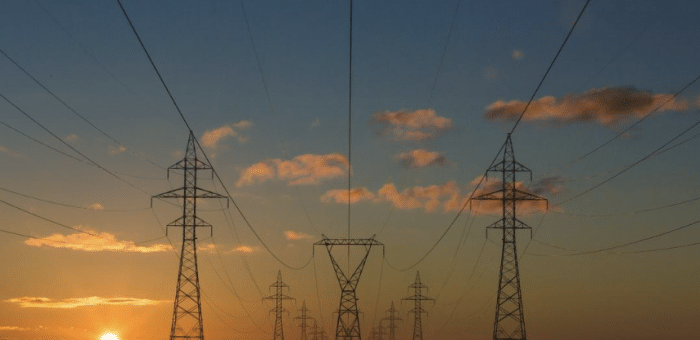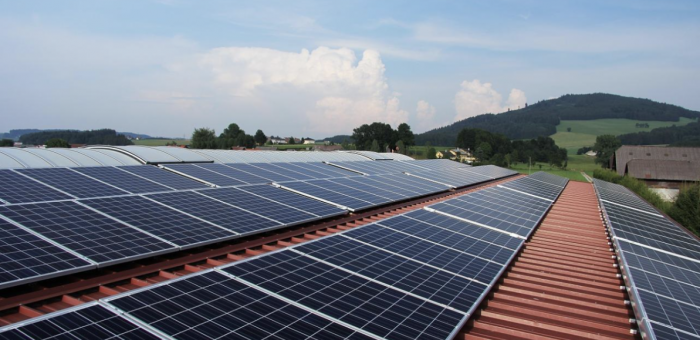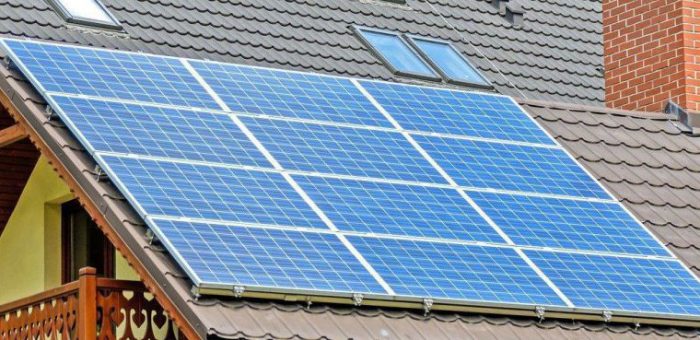An energy-efficient generator might come in handy in multiple situations. You might be working from home when the power goes out as your deadline fast approaches. A powerful storm could knock out power to your home for multiple days. Or you might want to work on projects in areas of your home or yard with no power access.
[ctafirst]
Even if you’re using Power Wizard to find affordable and reliable energy in your area, there are still times you may need a generator. You’re already committed to saving energy in your home, so opt for an energy efficient generator. They will last longer, allowing you to function through most power outages.
Types of Generators for Energy Efficiency
Home generators can be expensive, and you should research your desired model before investing. You want a generator that meets your specific needs, which can vary based on the size of your home, weather patterns in your area, personal preference, and more. Here are some different types of energy efficient generators to consider and what contributes to generator efficiency.
Portable Inverter Generator
Inverter generators are small and efficient. This type of generator fluctuates power levels depending on demand rather than running at full power all the time. You can find larger models to power bigger spaces, but they weigh more and aren’t portable. A portable generator is smaller and has wheels for easier mobility depending on where you need power. Inverter generators use less gas than other types of generators.
[ctafirst]
These generators are quieter than other, less efficient models. If the noise levels of your neighbor’s whirring generator drive you nuts during power outages, try an inverter instead. Inverter generators also emit less carbon monoxide than other models.
Dual Fuel Generators
Rather than using one type of fuel to function, a dual fuel generator uses two — most often natural gas and diesel. They are better for your home because you don’t have to store large quantities of diesel fuel in your home. Natural gas burns cleaner than diesel, so these generators have lower emissions than their single-fuel counterparts.
[ctafirst]
If your dual fuel generator runs out of natural gas, it will run on diesel alone. If you’re in a prolonged power outage from a hurricane, tornado, or another extreme weather event, dual fuel technology may last longer. This is particularly ideal if you hadn’t stocked up on fuel before the storm.
Standby Generators
Popular in commercial facilities like hospitals and others that need power to function, a standby generator is a backup power supply that is automatically activated when the power goes out. You can get smaller models for your home. Standby generators save you the time and hassle of getting your generator out of storage, fueling it up, and turning it on in the dark.
[ctafirst]
These generators run on natural gas or propane, so they are cleaner than other generators and generate less carbon dioxide. Standby generators are also located outside, so you don’t have to hear them or smell the fuel while it works to power your home.
Solar Generator
Since sunlight is abundant and cost-effective, you may consider a solar generator. You can get portable solar generators that are smaller and move through your home. Or you could opt for a solar-powered standby generator.
Solar generators work with panels that convert sunlight into energy that is then stored in a battery. When your power goes out, the battery provides energy to your home. Solar generators don’t run on fuel, so you never have to stock up. They are quieter than fuel-powered models and more energy efficient.
[ctafirst]
However, solar generators don’t last as long as other generators, and they can be slow to recharge. Subsequently, you may not have enough juice to get through a multi-day power outage. Power Wizard can help you determine how much energy you use daily to pick a solar generator that stacks up to your needs.
Features to Look For in a Generator
You might be tempted to compare prices on different generators and call it a day, but there is more to consider before making a purchase. Different factors will contribute to engine performance and hours of run time. Here are some various factors that may contribute to your decision.
Generator Ratings
Like most products, not all generators are created equally. Some generate more wattage, capable of powering a large home, while others only run the essentials, like your refrigerator. An electric generator’s voltage rating gives you an idea of its capacity.
[ctafirst]
Everything in your house uses different amounts of energy, which are known as watts. For example, your coffee maker runs on about 600 watts whereas your microwave runs on 1,200 watts. Generators are rated by how many kilowatts they can handle without being overloaded. If you’re only interested in keeping essential appliances up and running, you could opt for a 5,000 kW model. But if you want to back up power to your whole house, you may need a 20,000 kW model or more.
Fuel Source
Many generators are powered by natural gas or diesel, but there are some more energy efficient options, like solar generators. Each type of fuel is priced differently. In the current market, natural gas is cheaper than diesel fuel. What’s more, solar generators don’t require you to restock your fuel, but you will have to replace the battery periodically.
[ctafirst]
Your fuel source could also be regulated depending on where you live. Some fuel-powered generators can cause carbon monoxide poisoning if you run them too long with improper ventilation. Consider the overall fuel cost before you buy your generator. A diesel model may be more affordable up front, but paying for fuel could make it less desirable than a natural gas model.
Power Output and Emissions
Each model of generator has different emissions and power output. A large size generator can usually handle a higher power load. Depending on its application, your generator may only need to power a smaller load, like when you want to charge your phone when you’re camping.
[ctafirst]
Your electric generator efficiency is partly determined by its fuel source. If you want one that is more energy efficient with lower emissions, steer clear of the diesel-powered models. Or you can try dual fuel technology to cut back on how much diesel you’re using.
Ensure You’re Saving Energy During Power Outages
How efficient are generators? With current technology, they are more efficient and powerful than old models. New fuel-efficient power sources have made generators high-performing. But, they aren’t going to power your house as efficiently as the traditional power grid. Thus, you should save your generator for emergencies.
[ctafirst]
If you live in an area prone to power outages, then an electric generator can get you through the darkness. Make your generator last longer by saving energy you don’t need. Use your generator to power your most important appliances like your refrigerator. Charge your phone in case the generator fails. If you’re already using energy-efficient lights and appliances, your generator can go farther.
Use Power Wizard to find the best electricity plan for you. With Power Wizard, you can see cost savings without impacting your life.
Contact us today and see how we can save you money on your electricity plan.






